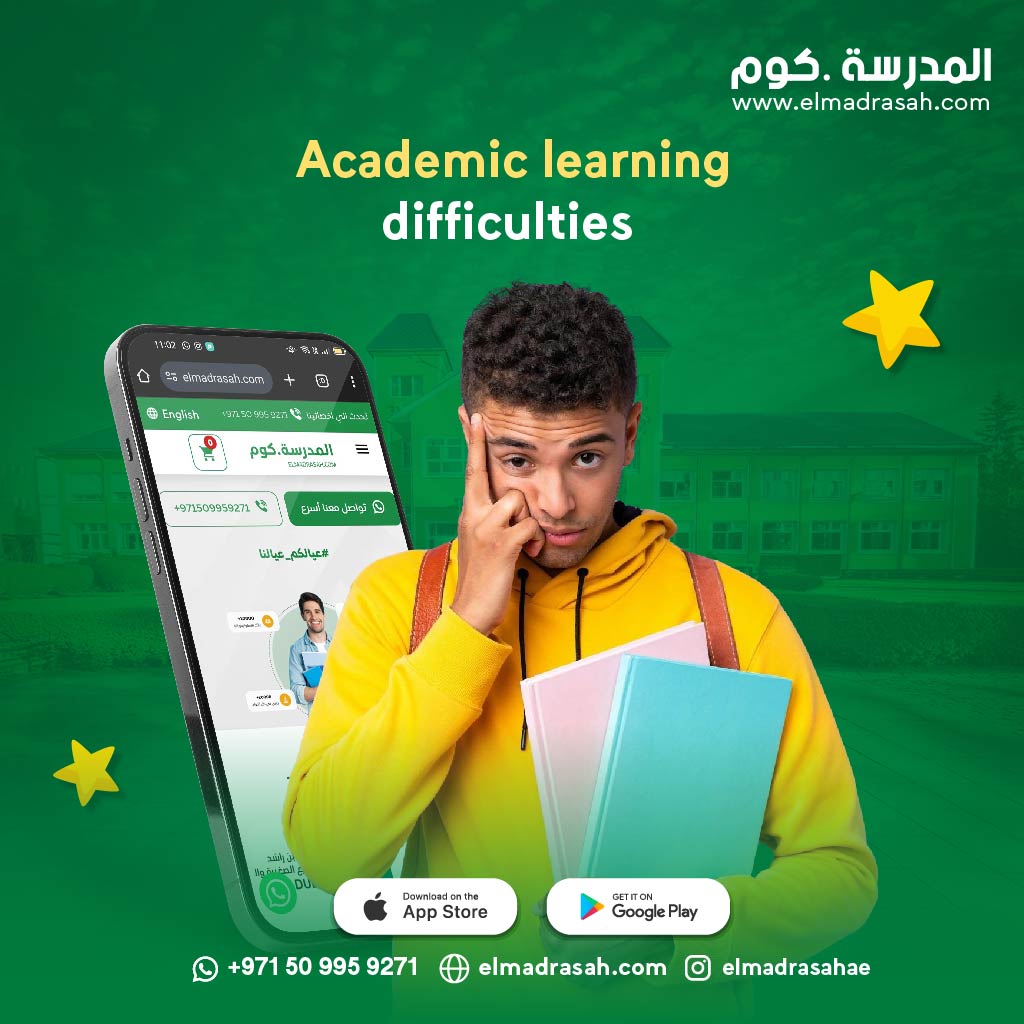nnn56


عدد المساهمات : 360
نقاط : 1078
السٌّمعَة : 1
تاريخ التسجيل : 15/04/2024
العمر : 25
 |  موضوع: What are academic learning difficulties موضوع: What are academic learning difficulties  الأربعاء نوفمبر 06, 2024 8:57 am الأربعاء نوفمبر 06, 2024 8:57 am | |
| [url=https://servimg.com/view/20550605/1640] Academic learning difficulties Academic learning difficulties[/url] are a group of disorders that affect an individual's ability to receive, process, store and retrieve information effectively. These difficulties differ from general intelligence problems, and include difficulties in reading, writing, mathematics, critical thinking and problem solving.Here are the most important academic learning difficulties and how to deal with them:Types of academic learning difficulties- Reading difficulties (dyslexia): affect the ability to decode letters and pronounce them correctly, making reading and comprehension difficult.
- Writing difficulties (dysgraphia): include problems with spelling, written expression, and coordination between letters, and appear in difficulty writing correctly.
- Arithmetic difficulties (dyscalculia): include difficulty understanding numbers and basic arithmetic operations, and the relationship between numbers.
- Linguistic comprehension difficulties: related to difficulty understanding complex instructions, and difficulty comprehending oral information.
How to deal with academic learning difficulties- Early assessment and diagnosis: It is important to conduct an early assessment to find out what type of difficulty the child suffers from. Diagnostic tests can be conducted by special education specialists, and the results help develop a personalized support plan.
- Multimedia education: Using visual media such as illustrations and pictures, and audio such as audio recordings, facilitates understanding of the study material, especially for children who have difficulties in reading and comprehension.
- Individual strategies in education: Teaching methods should be customized to take into account the needs of each student, for example, using different educational methods such as educational play and practical activities.
- Repetitive and gradual education: Constant repetition and regular review help to fix information in the child’s memory. Dividing lessons into small parts helps to absorb information better.
- Emotional support: The child needs a supportive and non-critical environment, where the child feels safe and able to face academic challenges with confidence.
- Use of assistive technology: There are applications and technical tools designed to support academic learning difficulties, such as audio reading programs for children with dyslexia, and mathematics applications to learn arithmetic in an interactive way.
- Collaboration with teachers and parents: It is important for there to be communication between parents and teachers to track the child’s development and exchange advice on how to support the child at home and at school.
| |
|


